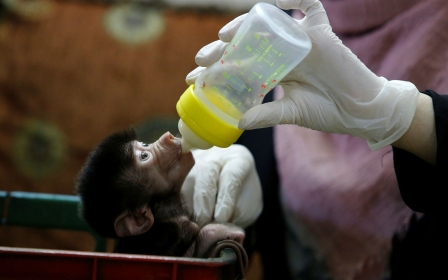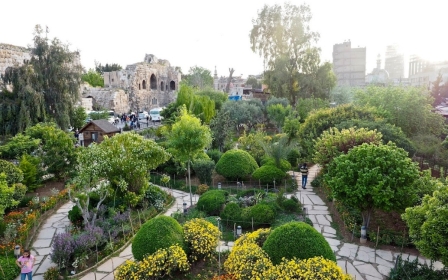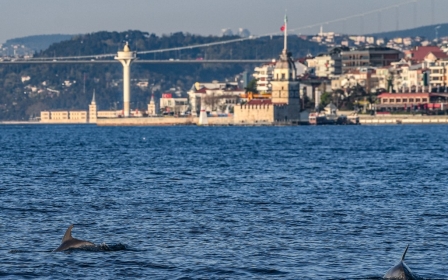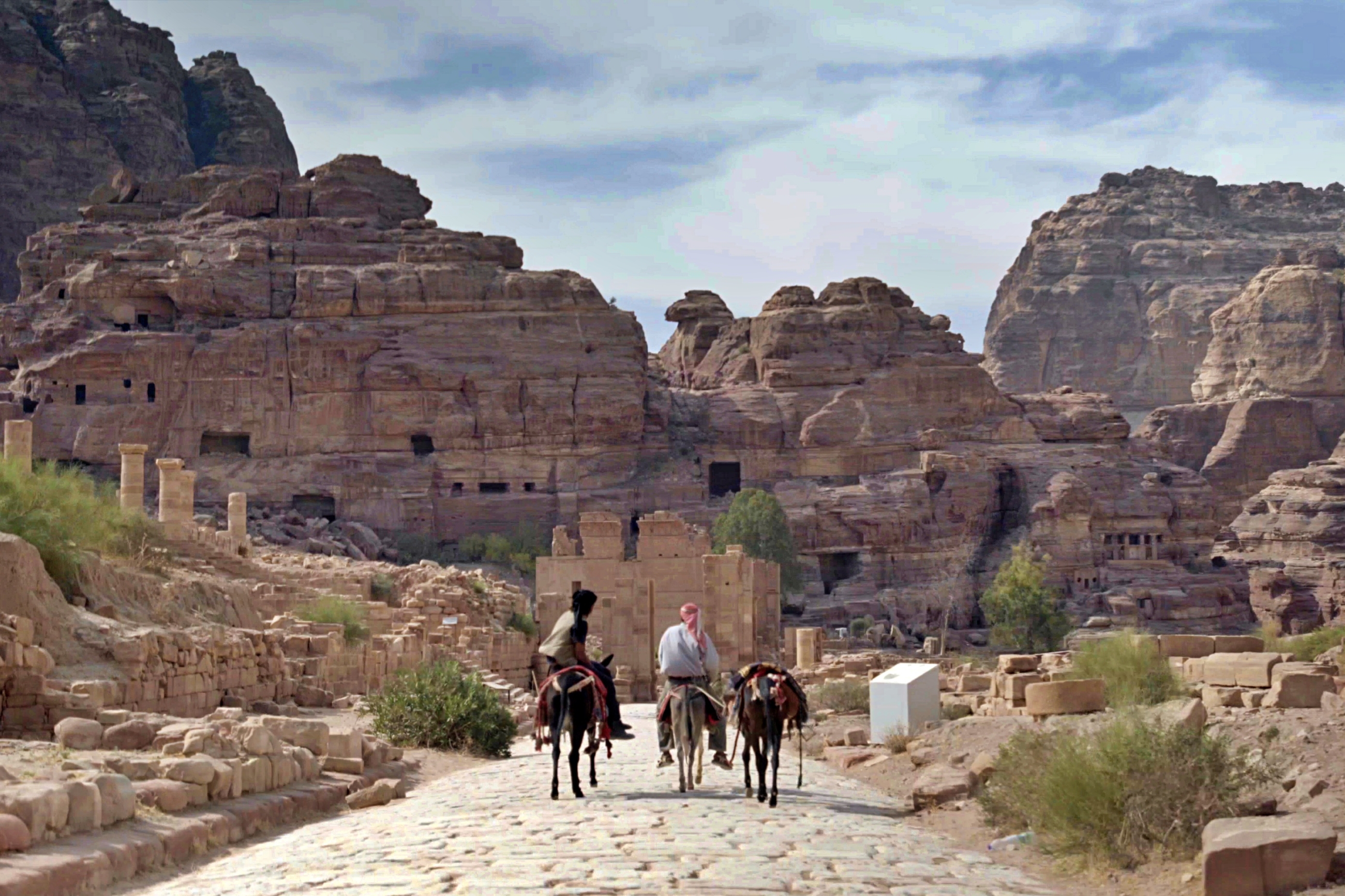
In pictures: Jordan's donkeys suffer from neglect in Petra amid pandemic
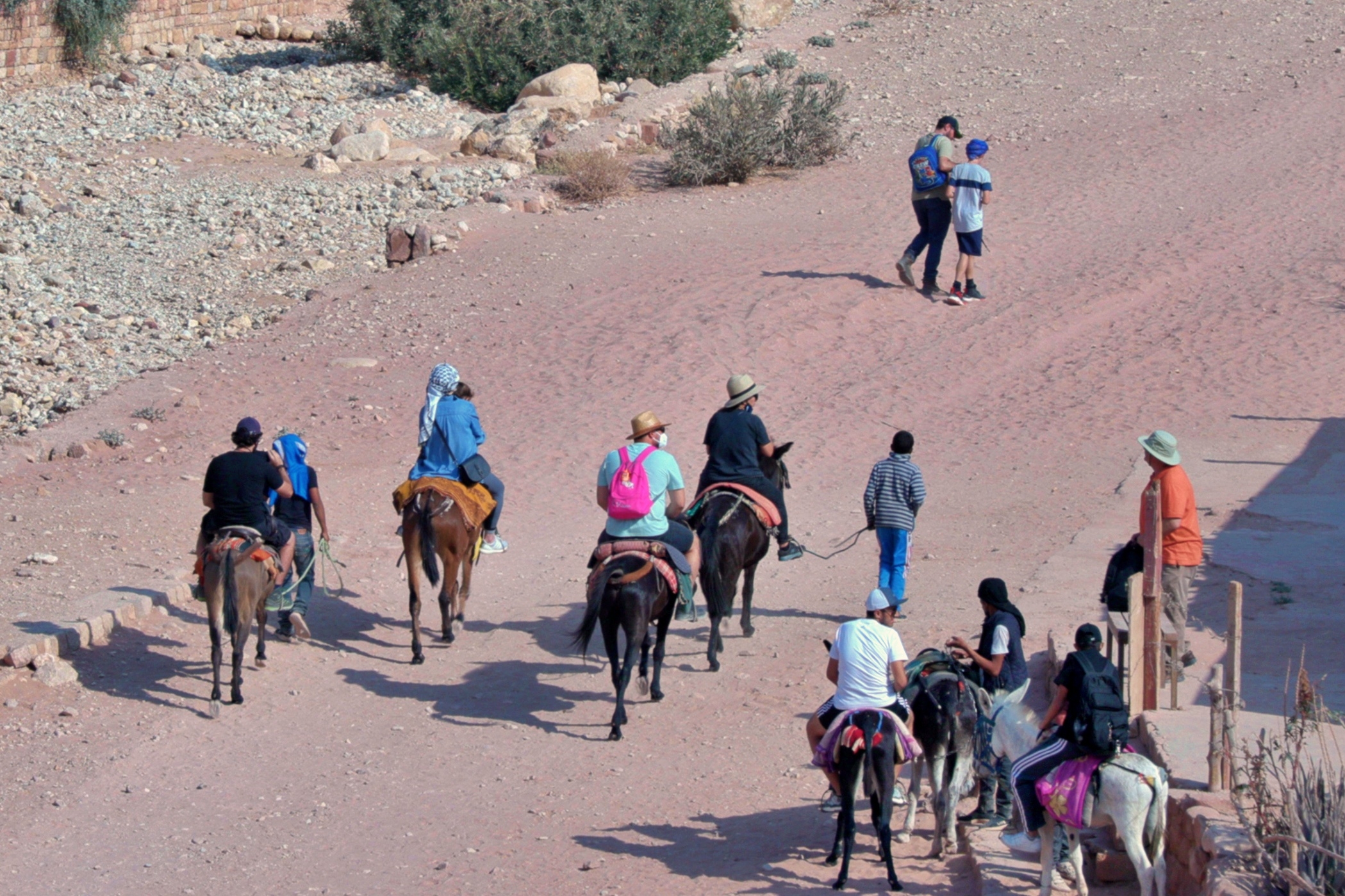
Tourists riding donkeys and horses used to be a common sight in Jordan's historical city of Petra.
Few local residents would have admitted that there is a problem with animal welfare at the famed archaeological site, but those who do talk about a lack of food and water for donkeys climbing steep steps up to the rock-carved monastery that is one of the area's most popular spots, and spending long days carrying tourists.
The global coronavirus pandemic has resulted in a complete crash of the tourism industry. This has provided donkeys and horses with a respite from their back-breaking work, but owners are now struggling to feed them due to a lack of income. (MEE/Asmahan Bkerat)
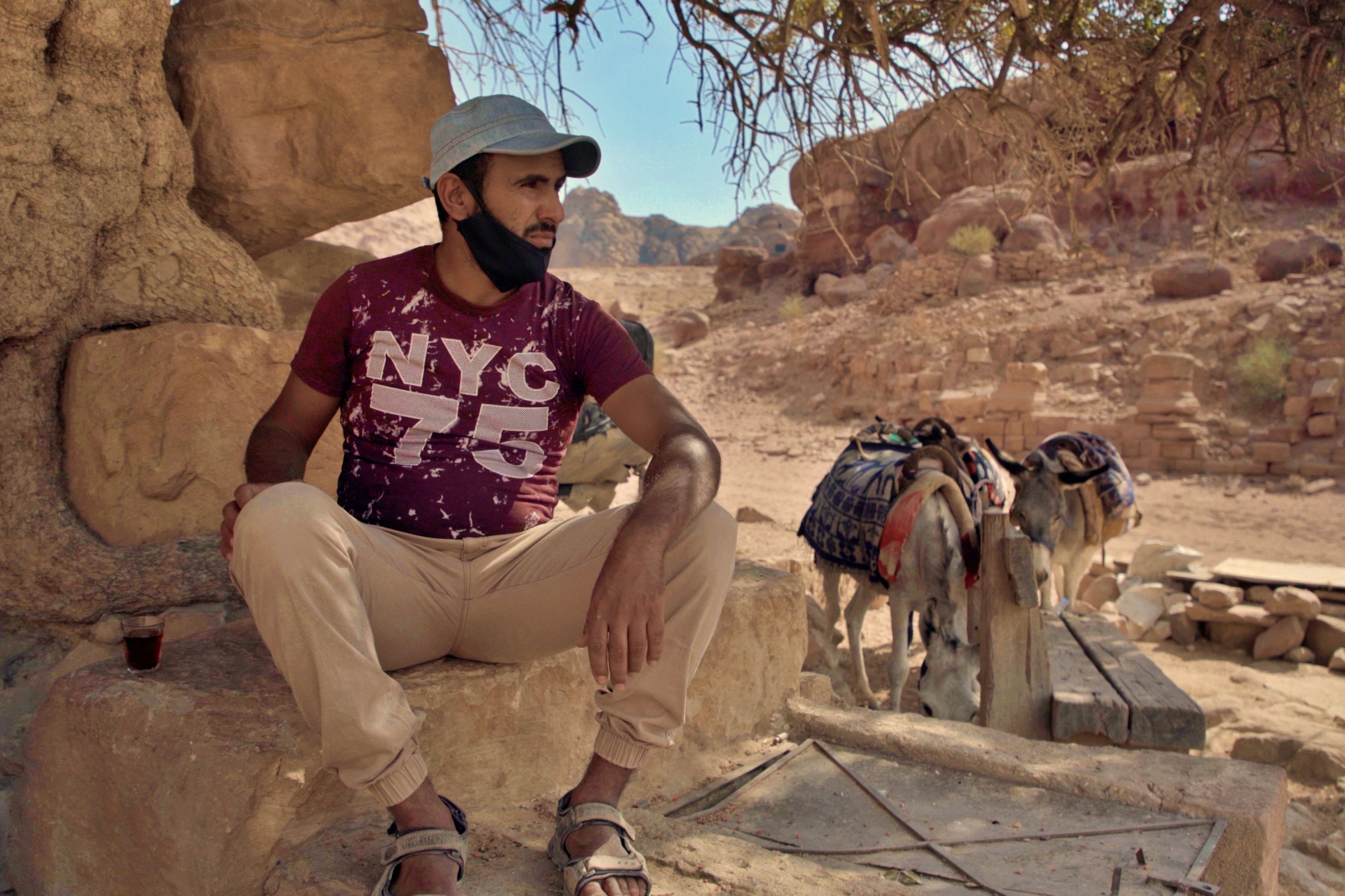
Abu Karam sits beneath a tree in ancient Petra with his donkeys tied behind him.
He says the lack of tourism has meant many people have released their animals, leaving them to scavenge for their own food. This means donkeys often eat plastic from rubbish bins, which can cause their deaths.
Abu Karam believes that a veterinarian clinic run by animal rights group People for the Ethical Treatment of Animals (PETA) is providing a crucial service, but that a bigger operation is needed to meet the needs of all the animals in the area. The Petra World Heritage Site covers more than 260 square kilometres. (MEE/Asmahan Bkerat)

Abdelrahman Atallah, a 14-year-old volunteer, helps soothe a donkey that is receiving treatment at the PETA animal clinic in Petra after being injured in a fight with another donkey over food.
The animal is one of about 40 in-patients at the centre, the majority being donkeys.
In the past month, about 140 animal out-patients have reportedly been treated at the centre, while more than 100 animals have been treated through the mobile clinic. Five animals have had to be euthanised. (MEE/Asmahan Bkerat)
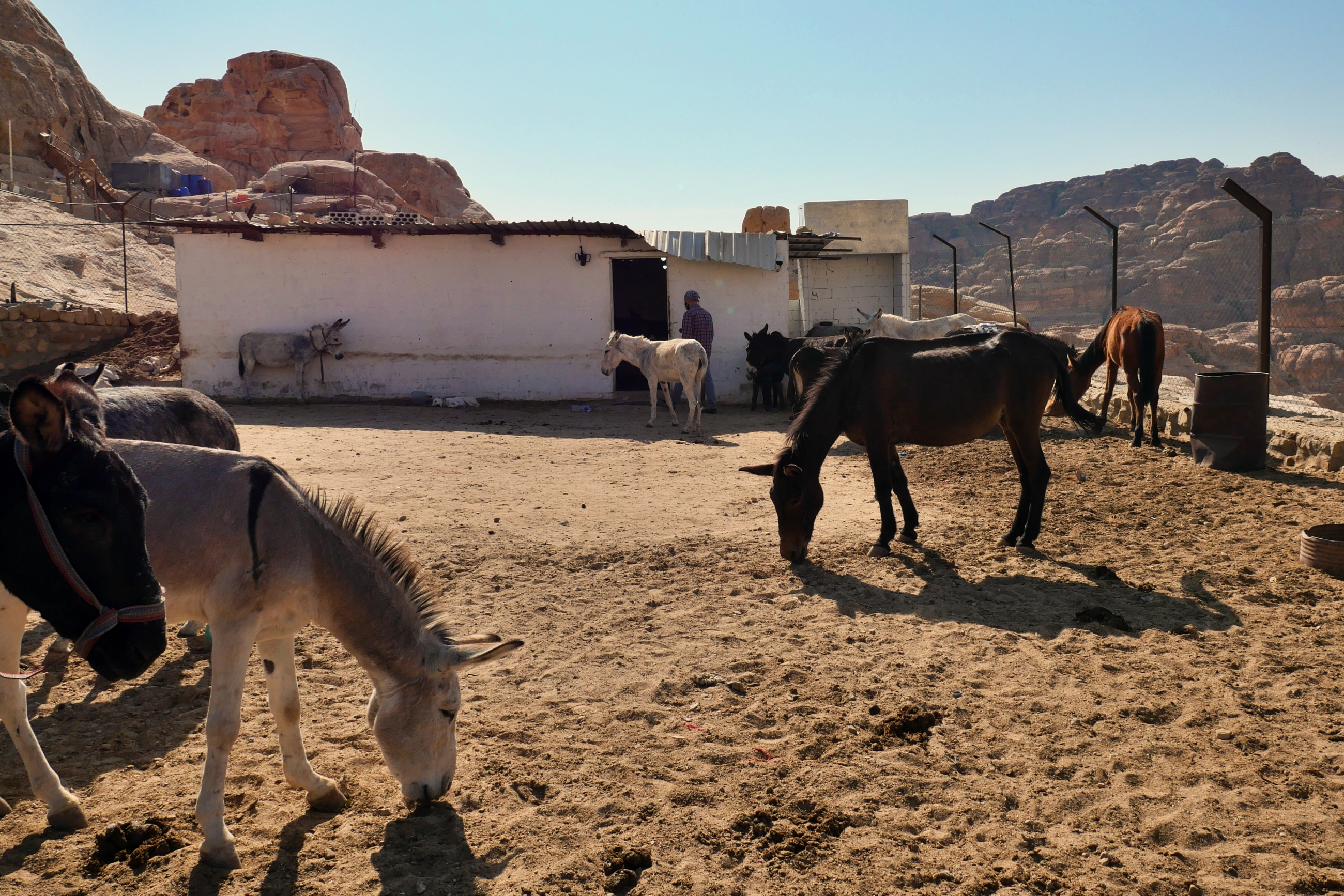
Donkeys and horses are kept in the yard at the PETA clinic in Petra, which has been operational for about a year. The clinic is headed by Egyptian veterinarian Hassan Shata, who told Middle East Eye he is trying to increase awareness of animal welfare. (MEE/Charlie Faulkner)
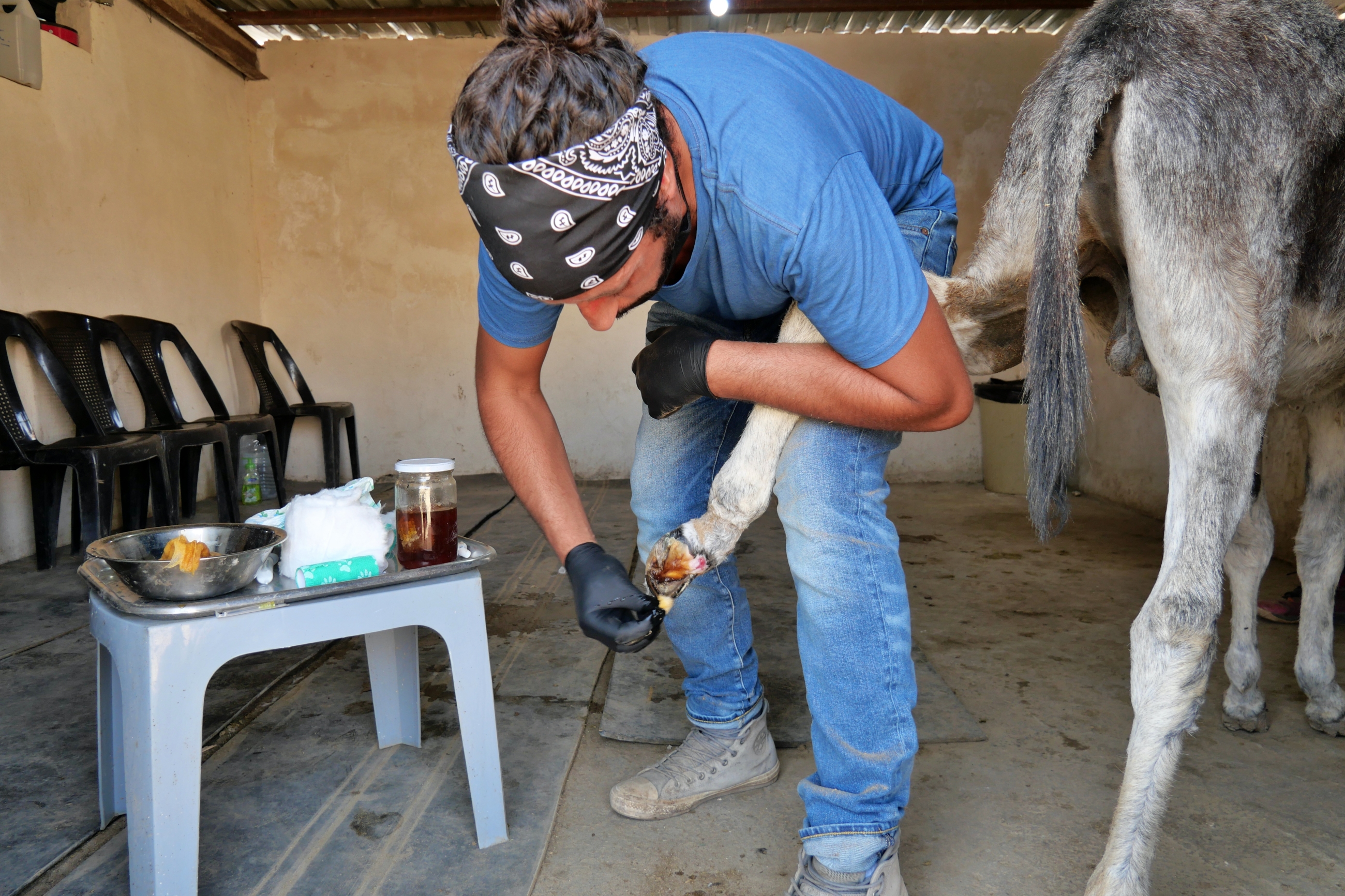
Veterinarian Shata treats a donkey with a detached hoof. The donkey is recovering well now that it is receiving the correct medical treatment, but it will take many months before it is able to walk properly again.
Shata says he often gets called out to emergency cases. He will travel within a one-hour radius of the centre, often driving off-road to reach animals.
The clinic offered Arabic and English language classes to young people in the area prior to the pandemic, as well as teaching them how to take care of their horses and donkeys. For now, the classes have been suspended. (MEE/Charlie Faulkner)
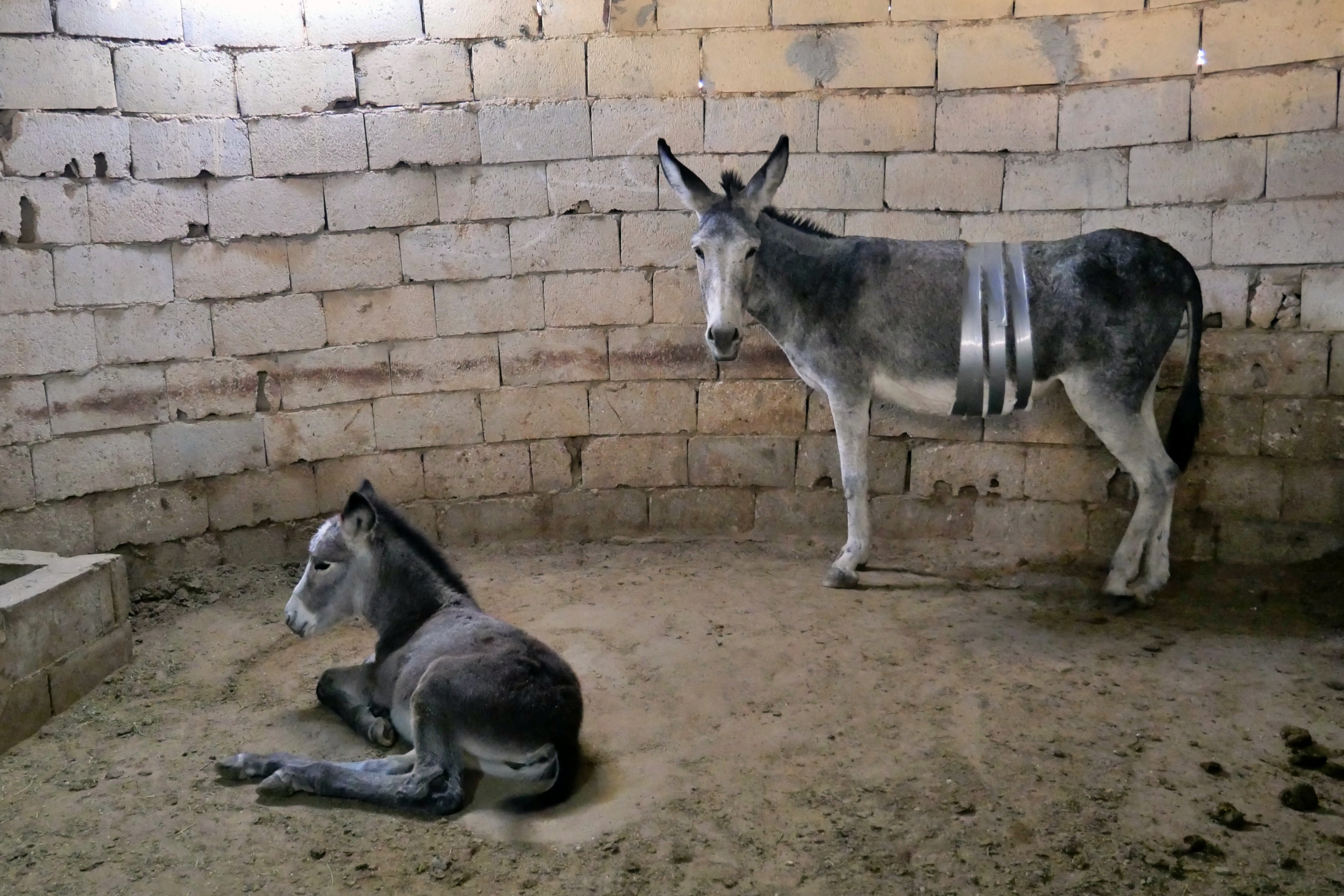
An injured female donkey stands with her foal in a pen at the clinic after she fell and cut her belly open.
Her owner visits every day to check up on her progress. Before the pandemic began, he would earn about 20 Jordanian dinars ($28) a day from tourists riding the donkey. (MEE/Charlie Faulkner)

Younes Mohammad, 26, says the clinic is a vital asset for the community and fully supports the work that is being done there.
Before the PETA clinic was set up last year, many owners would use traditional methods of treating their animals. One example is when a poisoned donkey had his ears sliced in two; his owners believed this was the correct way to help their animal. (MEE/Charlie Faulkner)
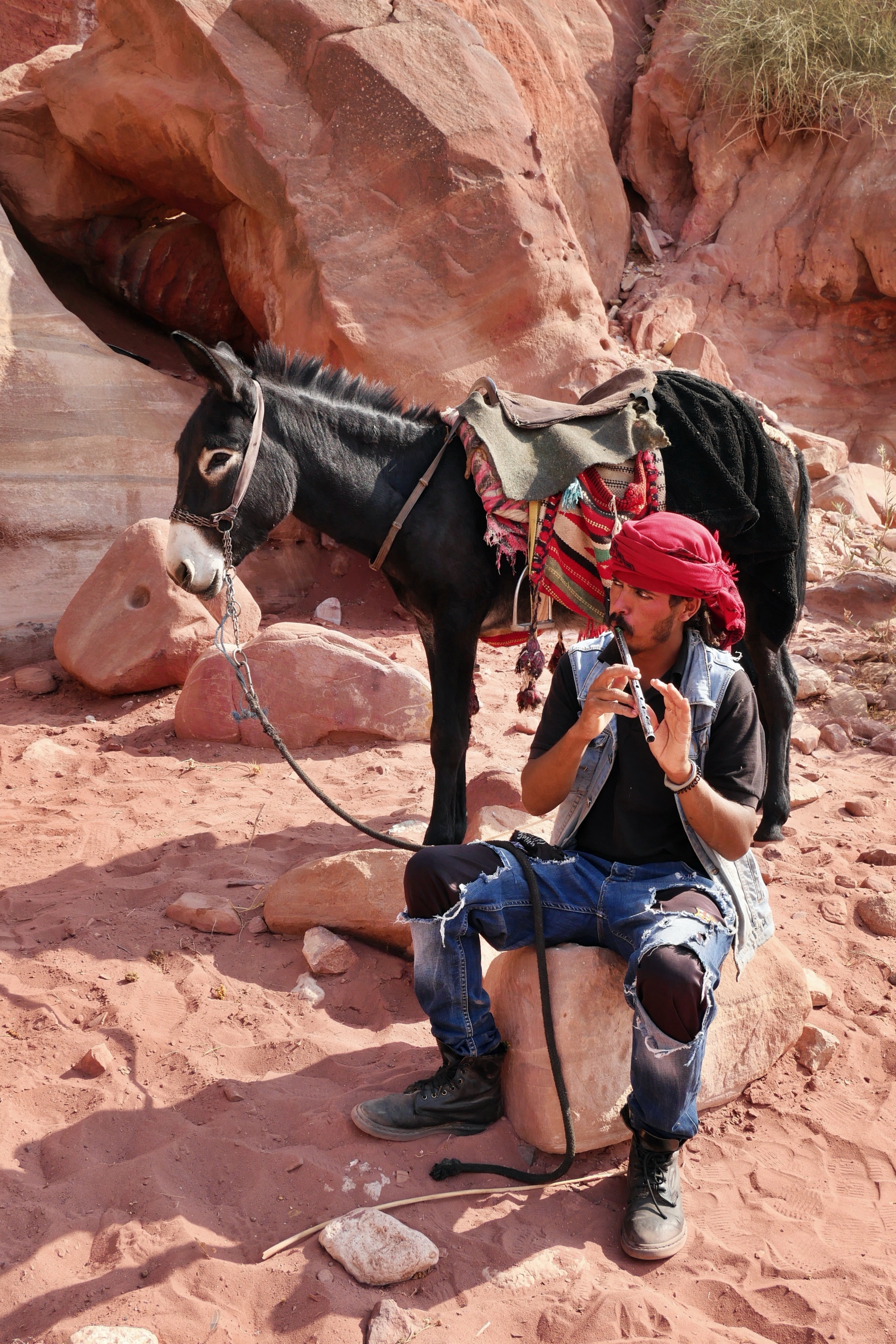
Bedouin Tariq Mohammad plays his flute while sitting next to his donkey in Petra. Riding donkeys, and using them to carry burdens such as water and wood, are a normal way of life here.
Mohammad says he does his best to take care of his donkeys as they are a crucial part of people's lives. He believes people who abuse animals are ignorant children who have dropped out of school and "have nothing better to do". (MEE/Charlie Faulkner)
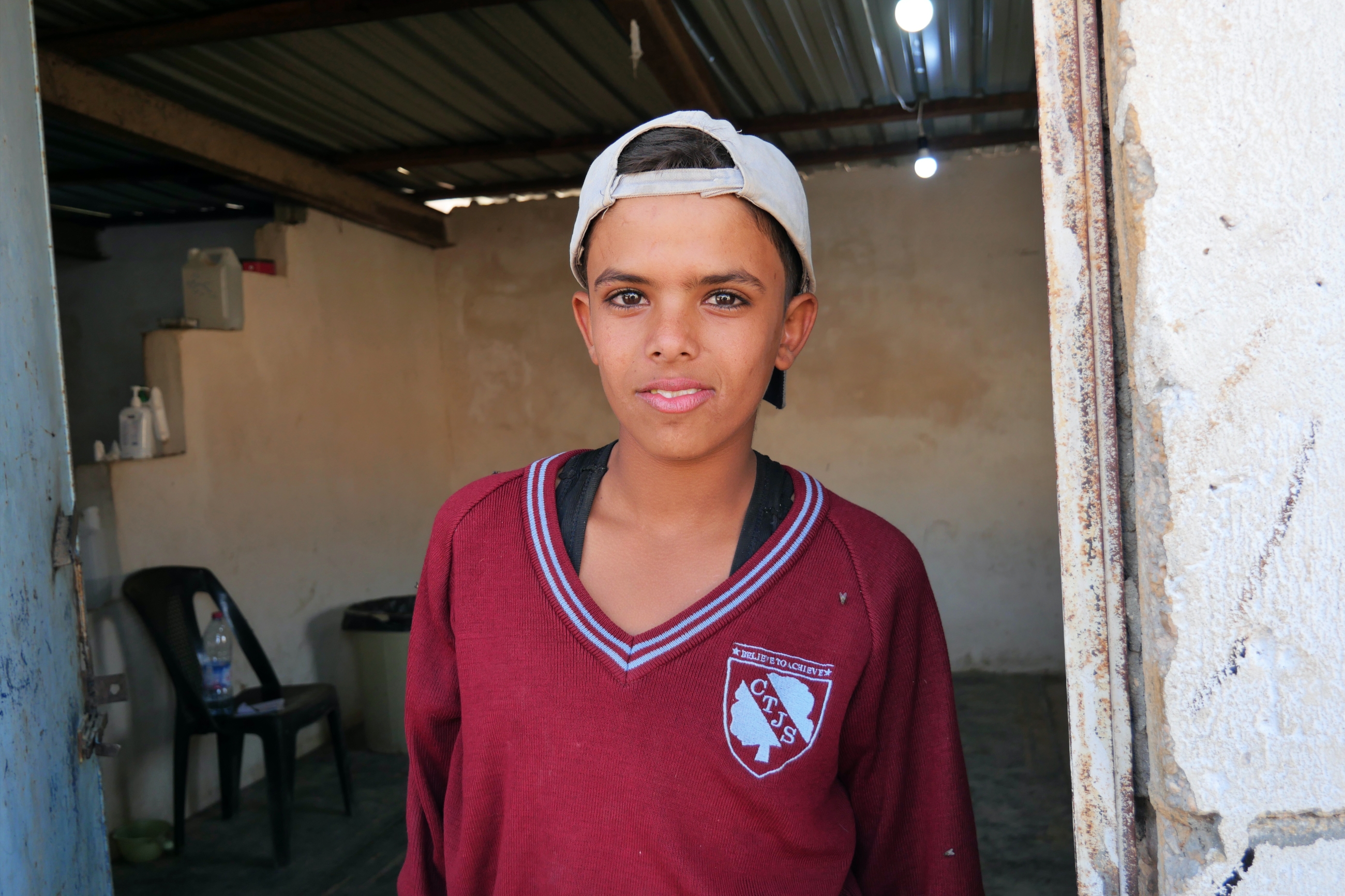
Young Abdelrahman owns two donkeys, and says he tries to treat them with kindness and respect. He uses his donkeys for tourism to support his family but says he would avoid doing so if he could.
While PETA has stated it hopes animals will cease to be used in Petra, the chief commissioner for the Petra Development and Tourism Region Authority, Suleiman Farajat, says a balance is needed to ensure locals do not lose their income.
Farajat aims to bring awareness to the importance of education and reduce the number of children leaving school in order to work in the tourism industry. (MEE/Charlie Faulkner)
Middle East Eye delivers independent and unrivalled coverage and analysis of the Middle East, North Africa and beyond. To learn more about republishing this content and the associated fees, please fill out this form. More about MEE can be found here.


